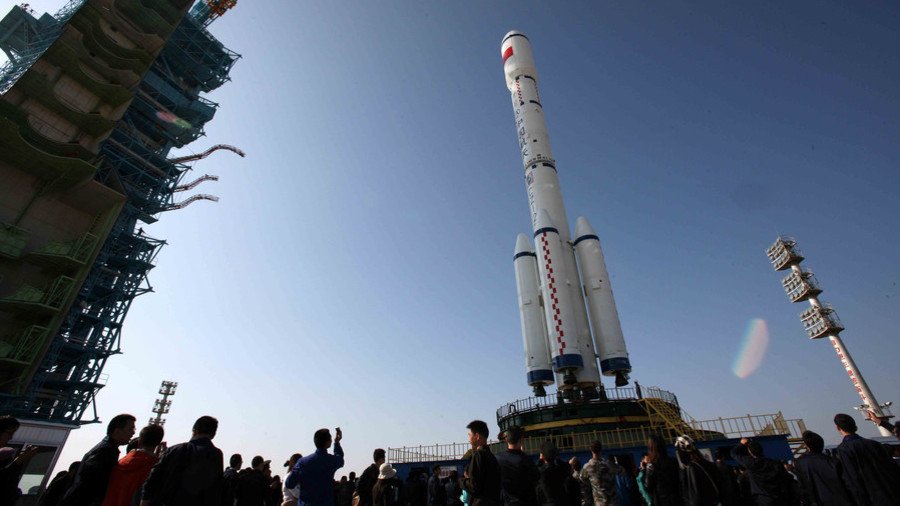Out-of-control Chinese satellite to strike Earth: What are your odds of being hit?

China’s out-of-control Tiangong-1 space station will likely come down to Earth next month. But anyone looking warily at the sky need not worry. The chances of being hit by a piece of space metal are quantum at best.
READ MORE: ‘Complete success’: Shenzhou 11 returns Chinese duo to Earth after longest space mission
The Aerospace Corporation made the claim in a report posted to its website. While engineers acknowledge that the chances of debris being a threat to people are slim, there is a worry that the craft’s layered construction, which they liken to an onion, could make it harder for the 8.5-ton vessel to fully disintegrate in the atmosphere. “The probability that a specific person will be struck by Tiangong-1 debris is about 1 million times smaller than the odds of winning the Powerball jackpot,” the report read.
Launched in 2011, the Tiangong-1 is China’s first ever space station and was designed as a pilot mission for the Tiangong-2 space laboratory. Two manned missions were completed to the Tiangong-1 in 2012 and 2013. The spacecraft has been steadily losing altitude since losing contact with Chinese mission control in 2016.
China’s cargo spacecraft docks with orbital laboratory for 1st time https://t.co/MXORJTLCC9pic.twitter.com/0OLRQcqLvi
— RT (@RT_com) April 22, 2017
In November, experts from the European Space Agency announced that it had narrowed down the number of possible crash sites, saying that Spain, Portugal, Italy, Bulgaria and Greece could be in the firing line should any pieces of the craft fail to burn up completely in the atmosphere.
“There is a chance that a small amount of Tiangong-1 debris may survive re-entry and impact the ground. Should this happen, any surviving debris would fall within a region that is a few hundred kilometers in size and centered along a point on the Earth that the station passes over,” the ESA said in a statement at the time.
READ MORE: Crashing Chinese space station could rain fire on Europe
There has only ever been one case of a piece of space debris striking a person. In January 1997, Lottie Williams, a resident of Oklahoma in the US, reported that she had been struck in the shoulder by a piece of metal while walking through a park. Analyzed later, the sample was found to have been part of a fuel tank of a Delta II rocket that launched a satellite in 1996, according to Wired.
According to the Registration Convention, the set of laws governing the responsibilities of countries who launch objects into space, China would be liable for any damage done to property or people if the Tiangong-1 came down over land.
Think your friends would be interested? Share this story!














